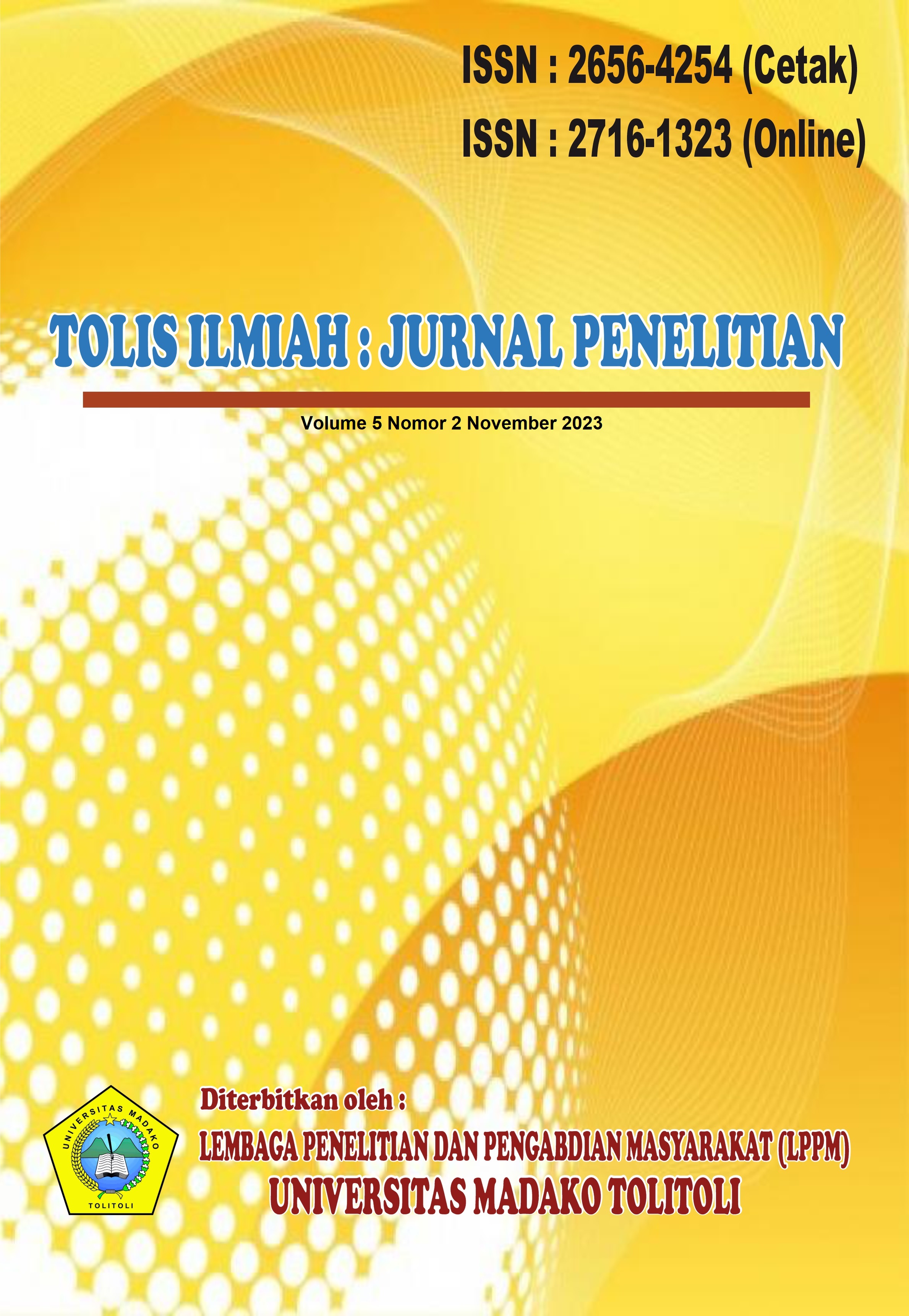Community Involvement in Agritourism: A Participatory Approach to Rural Sustainable Development
DOI:
https://doi.org/10.56630/tolis.v6i1.650Abstrak
Agritourism is a form of tourism that integrates the agricultural sector with tourism activities, aims to provide educational and recreational experiences for visitors and improve the welfare of rural communities through economic diversification. In Indonesia, the potential for agritourism is enormous thanks to the abundant natural and agricultural wealth. The active participation of local communities in the management of agritourism is the main key to the sustainability and success of this programme. Community participation can be realised through involvement in programme planning, implementation and evaluation, providing positive economic and social impacts. Support from various parties such as the government, private sector, and non-governmental organisations is essential to ensure the sustainability of agritourism. This research highlights the management of Tabarano Agro Hill in Tabarano Village, East Luwu Regency, showing how local community participation in agritourism management contributes significantly to sustainable rural development. The research method used was a descriptive qualitative approach, with data collection through in-depth interviews, observation, and documentation. The results showed that community participation in various aspects of management, including decision-making, programme implementation, environmental maintenance, and marketing, improved the quality and attractiveness of agritourism, and provided sustainable economic, social, and environmental benefits for the local community.
Referensi
Dayan, M. A., & Sari, M. I. (2022). Potensi Agrowisata Berbasis Masyarakat. National Multidisciplinary Sciences, 1(1), 53-59.
Lao, H., Kabu, E., & Nazarudin, H. (2024). PERAN MASYARAKAT LOKAL DALAM KEBIJAKAN PENGEMBANGAN PARIWISATA DESA FATUMNASI, TIMOR TENGAH SELATAN. Jurnal Ilmiah Manajemen, Ekonomi, & Akuntansi (MEA), 8(1), 1967-1976
Marwanti, S., Nurhaeni, I. D. A., & Sugiarti, R. (2013). Penguatan Partisipasi Masyarakat Petani Menuju Ekonomi Kreatif Melalui Pengembangan Pariwisata Berbasis Sumber Daya Pertanian. Cakra Wisata, 17(1).
Nahar, A. N., Awwaliyah, A. N., Damayanti, L., & Nur, D. M. M. (2024). Pengembangan Desa Wisata Berbasis Partisipasi Masyarakat Lokal di Desa Wisata Colo Kudus. ARIMA: Jurnal Sosial Dan Humaniora, 1(4), 308-316.
Nurhidayati, S. E. (2015). Studi evaluasi penerapan Community Based Tourism (CBT) sebagai pendukung agrowisata berkelanjutan. Masyarakat, Kebudayaan Dan Politik, 28(1), 1-10.
Pramusita, A., & Sarinastiti, E. N. (2018). Aspek sosial ekonomi masyarakat lokal dalam pengelolaan Desa Wisata Pantai Trisik, Kulonprogo. Jurnal Pariwisata Terapan, 2(1), 14-25
Permana, M. (2022). STRATEGI PEMBANGUNAN KAWASAN EKONOMI PERDESAAN BERBASIS MASYARAKAT: Studi Kasus: Kawasan Agrowisata Bumiaji, Kota Batu & Agropolitan Srimartani, Kabupaten Bantul. Jurnal Plano Buana, 3(1), 10-22.
Salak, A. (2020).ISSN 2442-3262 pengembangan partisipatif untuk kegiatan wisata , hal ini sangat diharapkan oleh masyarakat sebagai pendorong kelestarian budidaya salak dan promosi potensi pariwisata . Tujuan penelitian adalah salak dan menganalisis tingkat partisipasima. 7(3), 302–312.
Widayuni, R. (2019). Partisipasi Masyarakat Dalam Pengembangan Desa Wisata Di Desa Sidokaton Kecamatan Gisting Kabupaten Tanggamus (Doctoral dissertation, UIN Raden Intan Lampung).
Yatmaja, P. T. (2019). Efektivitas Pemberdayaan Masyarakat Oleh Kelompok Sadar Wisata (Pokdarwis) Dalam Mengembangkan Pariwisata Berkelanjutan (Studi pada Pokdarwis Minang Rua Bahari di Desa Kelawi, Kecamatan Bakauheni, Kabupaten Lampung Selatan).



















